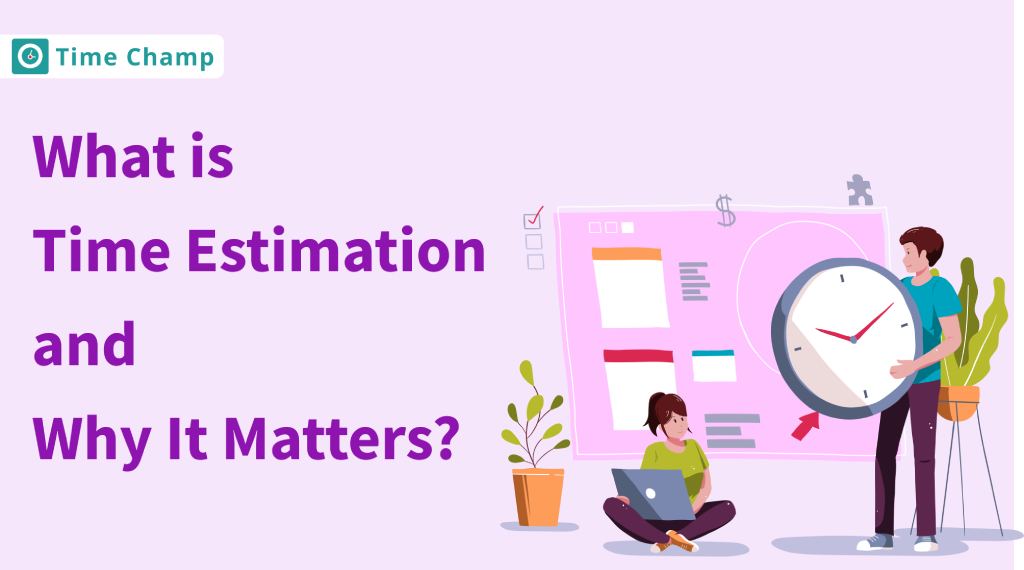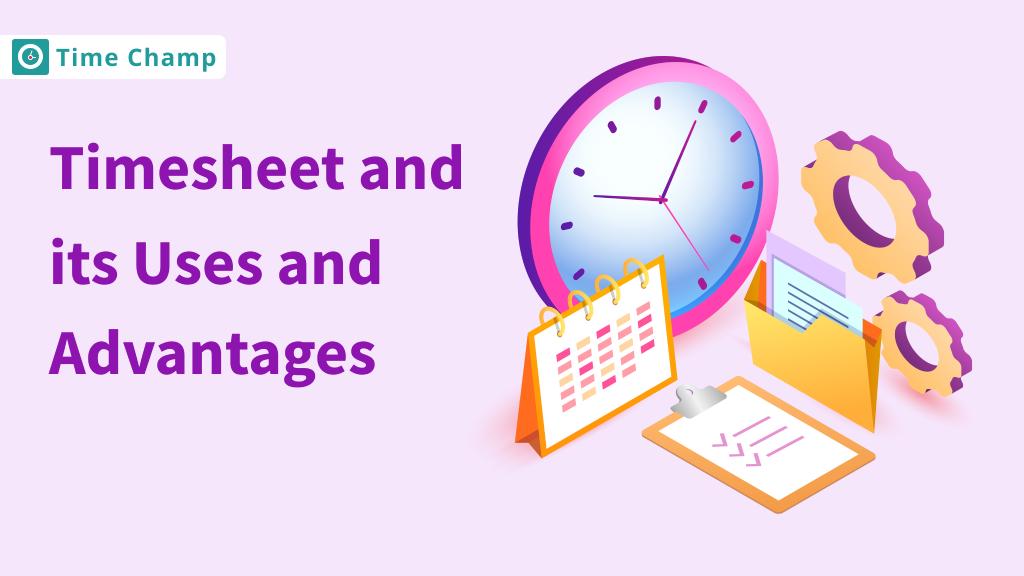Imagine how efficient your day would be if you had a clear idea of how long each of the tasks would take.
Sounds like a dream! Right??
That’s where time estimation comes in– it is not just about timing, but about effective planning and minimizing stress.
Let’s discover why it matters and how to master it for a more effective day!
What is Time Estimation?
Time estimation is the process of predicting the number of hours that it would take to complete a task. The concept applies to different domains such as business, personal, etc. It helps to manage time well, plan schedules, and allocate resources effectively.
Time estimation is applied in many fields, including business and project management, as well as in personal life. In a business environment, time estimation is useful in developing proper project schedules, setting proper time frames, and proper utilization of resources.
In the case of individuals, it helps in planning the day’s activities, prioritizing, and achieving personal objectives. Time estimation allows for better planning because it provides an approximate idea of how long tasks will take, which is useful in decision making regarding scheduling and resource allocation.
Why is Time Estimation Important?
Time estimation is important because it helps you plan your tasks and projects in the right manner. It enables you to plan and manage your time and energy well, avoid procrastination, and accomplish tasks within the set deadlines. You can set realistic goals and be well-coordinated. It also helps with the efficient progress of the teams since it helps organize the work.
In a team meeting, time estimation is a critical factor that helps in improving the flow of communication and coordination. Time estimation also enhances the use of manpower, tools, and financial resources since it is easier to plan for the right amount of resources needed for a particular project. When comparing the progress with the time estimates, you can easily notice that some projects may be facing certain problems or may be behind schedule and make corrections if needed. In general, the precise estimation of time enhances efficiency by enabling you to schedule and prioritize tasks and projects effectively, thus increasing the rate at which tasks and projects are accomplished.
Benefits of Time Estimation in Project Management
Generally, people often overlook time estimation but the benefits that it brings to the table are valuable.

1. Good Planning
Accurate time estimation is an essential component in effective planning. When you have a clear idea of how long a task will take, you can develop a good project plan with realistic timelines. This allows you to organize your tasks and avoid overloading by setting clear deadlines. Good planning makes sure that all the aspects of the project are aligned, and every step is well-coordinated.
2. Managing Budgets
Time estimation allows project managers to create an accurate financial or time budget since they know how much time is required for each task. By effectively managing project time, they can estimate the cost of labor, materials, and other requirements more effectively. This helps in controlling costs and preventing the project from going over the set budget and spending more than planned.
3. Resource Allocation
The estimated duration of tasks is crucial since it allows you to know how much resource is required.
For instance, if a task is estimated to take two weeks, then the right number of people can be assigned and appropriate resources provided in those two weeks. It avoids congestion, nobody is overloaded, and it helps with the efficient use of available resources.
4. Meeting Deadlines
Time estimation helps to meet the set deadlines. By estimating how long each task will take, you can set clear deadlines and manage time effectively. This helps prevent a time crunch at the end of the project and ensures that each stage of the project is completed within the planned timeframe.
5. Tracking Progress
Estimations are used to measure the performance against the set standards of time. You can compare the time spent on the tasks with the estimated time and determine if the project is on schedule. This comparison helps identify any disparities and allows for corrective measures on the schedule.
Best Time Estimation Methods
Time estimation might sound simple and easy, but it isn’t. It is better not to estimate time based on casual mood. Instead, use the below-mentioned methods which help you to plan and organize better.
Let’s have a look:
1. Use Historical Data
This is one of the easiest time estimate methods. If you are working on a similar task that you’ve completed before, you can estimate the time needed based on how long it took in the past.
2. Bottom-up method
In the bottom-up method, you break down a project into its smallest parts or tasks. You then estimate how long each part will take based on experience, expert advice, or previous data. Once you have estimated the time for all the individual parts, you add these estimates to get the total time needed for the entire project. This method helps ensure that every detail is considered for a more accurate overall estimate.
3. Top-down method
The top-down method is different from the bottom-up approach. Unlike the decomposition approach where a project is broken down into sub-tasks, you begin with a high-level estimate of the total project and then gradually refine the estimate by breaking it down into the details of the sub-tasks. It is most useful in large or complicated projects where other methods cannot be applied to use. The top-down method can be more accurate than the bottom-up method, but this is possible only if there is enough information and experience to make the estimates.
4. Expert Judgment
Among all the methods that can be applied to estimate the time of the project, one of the most efficient is the expert judgment technique. This involves seeking advice from people who have a lot of experience and knowledge about the subject matter. These could be team leaders, managers, or even external consultants. It can help you prevent mistakes and improve the outcomes of the projects you are implementing.
Some methods might not work out if you don’t estimate your time well, then it is recommended to consult an expert who has good experience. It can help you prevent mistakes and improve the outcomes of the projects that you are implementing.
5. Planning Poker
Planning poker is a team activity that is used in Agile project management to determine the time that a particular task will take. Team members are given cards with numbers on them and must estimate the amount of time needed to complete a given task. Everyone shows their cards at once and then the team deliberates on the choices made to come up with the final decision. It also helps to ensure that all the members are active and that everyone is on the same page.
Challenges in Time Estimation
Yes! You read it right!
There are some challenges in time estimation, even when you are very careful. Most of them are not seen as they happen in flow.
1. Uncertainty
Estimating the time that a particular task will take is not always easy because there may be some hitches along the way.
For instance, if you are in the middle of a project and then you have a technical problem or a new specification, it will slow down the project. This is why it is difficult to provide an accurate time estimate because you cannot predict what may happen or what may change.
2. Complexity
Some activities may look easy to accomplish, but they are complex. For example, a project may have challenges or extra procedures not easily seen at the initial stage. It is crucial to know what must be done, but this is not always easy. If you do not understand the depth of a task, your time estimate may be short, and this will cause a setback.
3. Lack of Experience
This is because when you are not familiar with similar tasks, it becomes difficult to estimate the time required to complete them. For instance, if you are new to a certain type of project, you may not have any idea how long it should take to be done. When there is no past data or experience to refer to, your time estimates may not be accurate, and this hampers planning.
4. Over-Optimism
It is quite common for a person to think they can complete a task in a shorter time than is possible or take longer than necessary to complete a task. You may set a goal that you will complete in two hours, but it takes four hours because of the challenges that you did not consider. This over-optimism results in the setting of wrong timelines and failure to meet these set deadlines.
5. Distractions
Interference and task-switching can also affect the time it takes to complete tasks. If you are writing a report and every time the notification of a new email or a phone call appears, it will take more time to complete the report. If you do not consider these possible distractions, your time estimates may be inflated, and this will only cause more problems.
Tips to Improve Your Time Estimation

Track Your Time
It is important to track how much time is consumed to complete a task. It helps to estimate your time better for future similar tasks. Whether you use time-tracking software or manual tracking, make sure to track your time.
There are high chances that you might face if you track your time manually, so it is recommended to opt for good time-tracking software.
Time Champ is a user-friendly time-tracking software that helps you to track your time. It automatically tracks time that you spend on various tasks and generates detailed reports on them. Time Champ helps you see where your time goes and how to work better. It makes managing your time straightforward and helps you stay productive.
Use Time Estimation Methods Regularly
Do not ignore using time estimation methods. Using them consistently can help you to make accurate estimations. When you apply different time estimation methods, you get an idea of which suits best for you.
Add Buffer Time
Add some extra time as a buffer time for unexpected delays or challenges. A common practice is to add 20-30% extra time to your estimated time.
Refine Your Estimate
You should start with the time needed to complete the task. If your estimation is not accurate, revise it—such as break down the tasks, consult with experts, or identify what else might influence the task. Document the time it takes to complete each part of the process and adjust the estimates. It helps you in improving your time estimates in the future because it is an ongoing process.
Conclusion
In conclusion, time estimation is an essential aspect of time management that enables you to schedule and allocate resources and time to various tasks. Even though estimation is not always easy due to factors such as uncertainty and complexity, there are ways of enhancing the accuracy of the estimation.
Say goodbye to uncertainty! Use Time Champ to easily track your time and boost your productivity.
Signup for FreeBook a DemoFrequently Asked Questions
Time estimation is the process of predicting the number of hours required to complete a particular task or project.
When estimating, it is always recommended to include some extra time in case there is a delay that may occur. If there are any delays, then change the timeline and shift the due dates to the new timeline. Recording problems and how they affect the timeline is useful in forecasting future problems more accurately.
Indeed, time estimation techniques apply to personal activities and projects. In this way, you can organize your day and prevent yourself from getting bogged down with activities.
There are psychological biases that can cause the planning fallacy, which results in over-optimistic time estimates. This bias leads people to underestimate the time needed for a task even when they are aware that it has taken more time in the past. You can avoid such biases by being aware of them and reviewing the previous estimates.






